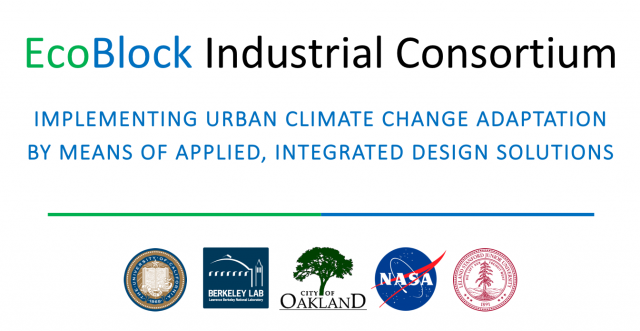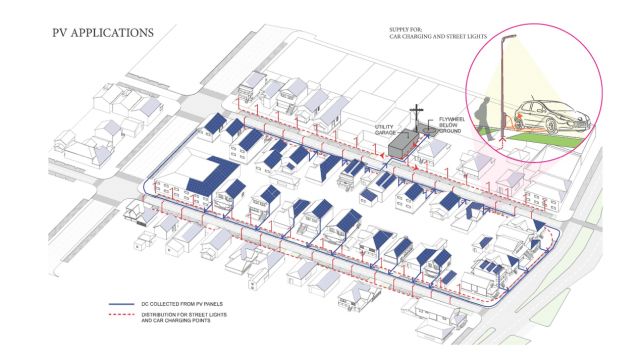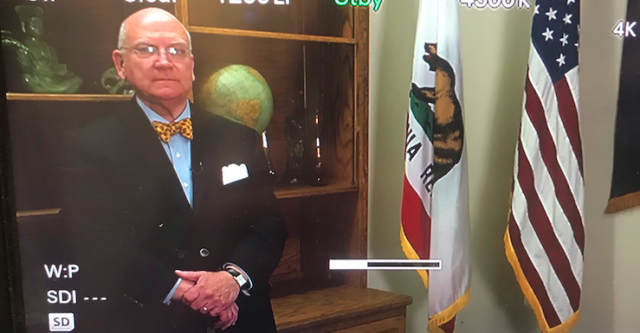Management team: Harrison Fraker (Co-PI), Daniel Kammen (PI), Anthony Nahas (Project Consultant)
Research Motivation
- How to make millions of old, inefficient homes part of a clean-air, low-carbon & low resource-use future?
- How can block-scale solutions enable better climate-change adaptation & response strategies than individual, home solutions?
- How do you get block-scale inhabitant buy-in, and support from utilities, stage agencies and the cleantech sector?
Hypothesis:
- The block-scale is considerably more efficient & cost-effective than the individual house-scale in achieving resource efficiencies, and takes advantage of emerging energy generation legislation and information systems.
Presumption:
- The block-scale aggregates the flows across multiple units, enabling greater efficiencies and economies of scale
EcoBlock Project:
- Test & benchmark results in real-time, with true case-control capacity via a sister-block.
Urban Block Re-Purposing
Design Objective: Social & Technological POV
- people + energy + water + wastewater ==> lowering resource end-use in the built environment
- design & implement a pilot around neighborhood engagement
- demonstrate efficient, functioning block-scale energy, water & wastewater treatment-and-reuse platform & retrofit process
- prototype & blueprint to replicate, improve & scale-up.
Design elements for resource-use efficiencies:
- Block-scale retrofit: optimized integration & operation
- communal solar & smart grid è electricity, storage & EVs
- communal waste re-use è bio-methane for cooking load, irrigation & compost for local, sustainable food systems
- Home-scale retrofit: whole-house energy + water solutions
- weatherization, EE appliances + lighting, smart controls
- grey-water re-use + water-conserving fixtures
- Institutional pathways: regulatory maneuvering & financing
Urban Block Re-Purposing
Electricity
Water
Funding Needs
- $8M over two/three years, from multiple funding sources (corporate, philanthropic, etc.):
- Microgrid + storage $1.5 million / Waste-water $.9 million / Water $.3 million / Contingency$.3 million
Motivations:
- Radically improve building performance (energy+water) as urban adaptive response to climate change
- Social response & integration of community’s wishes
- Legal & regulatory pathways & advocacy
- Financial innovations based on ‘avoided costs’
- New ways to commercialize green water systems, clean energy technologies, microgrid–storage, DR, systems controls, FDD, behavior analytics, etc.
Upcoming UCTV film to feature the EcoBlock, with comments from:
Tim Schaefer | Deputy Treasurer, Public Finance | Office of California State Treasurer John Chiang |


